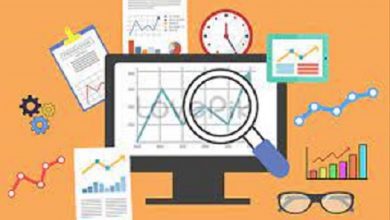Economics/Business
Economics
Economics is the social science that studies how individuals, businesses, governments, and societies allocate scarce resources to satisfy their unlimited wants and needs. It is concerned with the production, distribution, and consumption of goods and services, and the decisions and behaviors of individuals and institutions that shape these processes.
By reading the intensive articles of Englopedia.com you will grasp that it is a broad field that encompasses various branches and subfields, including microeconomics, macroeconomics, international economics, labor economics, behavioral economics, and many others. Microeconomics focuses on the behavior of individuals and firms, while macroeconomics looks at the overall performance of the economy, including issues such as inflation, unemployment, and economic growth. International economics examines the flow of goods, services, and capital across borders, while labor economics focuses on the behavior of workers and employers in the labor market.
Englopedia will make you aware that Economists use a range of tools and techniques, such as mathematical modeling, statistical analysis, and experimental methods, to study and analyze economic phenomena. They aim to understand how markets work, how individuals and institutions make decisions, and how public policies and institutions impact economic outcomes.
Through the leading articles of Englopedia you will realize that Economics has significant implications for individuals, businesses, governments, and societies, as it can inform decisions related to investments, production, taxation, trade, and social welfare policies. It is a crucial field of study for understanding the functioning and dynamics of modern economies and for addressing pressing global issues, such as inequality, climate change, and economic development.
-

Interpersonal communication definition role characteristics styles at work
Definition of Interpersonal communication A simple definition for interpersonal communication is the exchange of information between two or more people ,…
Read More » -

What is onboarding in HR its importance and steps to be taken
Wat is onboarding? The onboarding can be set as an initial step in which a new employee knows the whole structure of the…
Read More » -

What is Crisis management and the role of HR and advantages
What is crisis management? The word crisis is small, but its effects can be gigantic — especially for organizations that…
Read More » -

What is operational efficiency its importance Calculation and tips to increase
What is operational efficiency? The new coronavirus pandemic is responsible for a general wave of uncertainties, both in the health area and in…
Read More » -

What is PDCA its Origin workinga dvantages and PDSA
What is PDCA? PDCA stands for Plan (plan), Do (do), Check (check or verify) and Action or Act (act). It is a cycle, which is a management methodology focused on improving…
Read More » -

People-first approach its advantages and People First concept
What does People First mean? In this post, we will introduce the concept of People-first approach so that you can…
Read More » -

Job interview types importance models and roadmap for planning and advantages
What is Job Interview Here we will make you aware about Job interview types importance models and roadmap for planning…
Read More » -

Talent pipeline definition and How does the talent pipeline work
What is the talent pipeline? In general, the definition of talent pipeline is a database tool, where the data of…
Read More » -

Performance appraisal form its purpose features and how to choose
Performance appraisal form A performance appraisal form provides individual or group information about the organization’s performance. Today, automating this process through…
Read More » -

Individual performance evaluation its importance and examples
Individual performance evaluation The evaluation of individual performance is an excellent strategy to accompany employees in these “home office” times. Away from…
Read More »